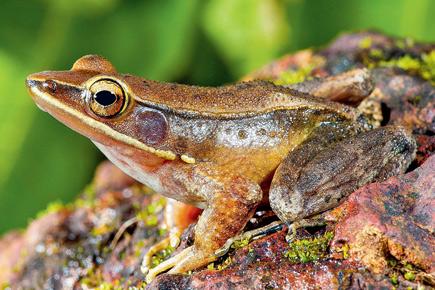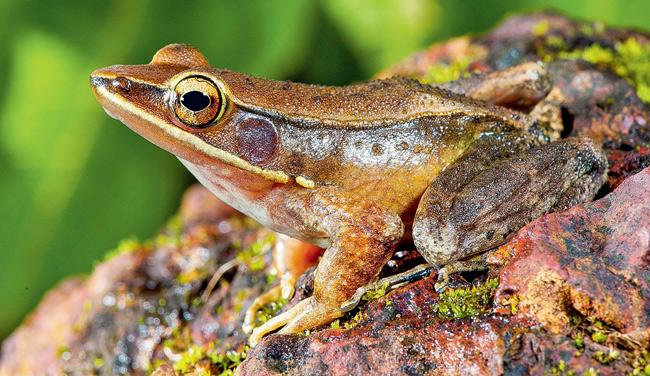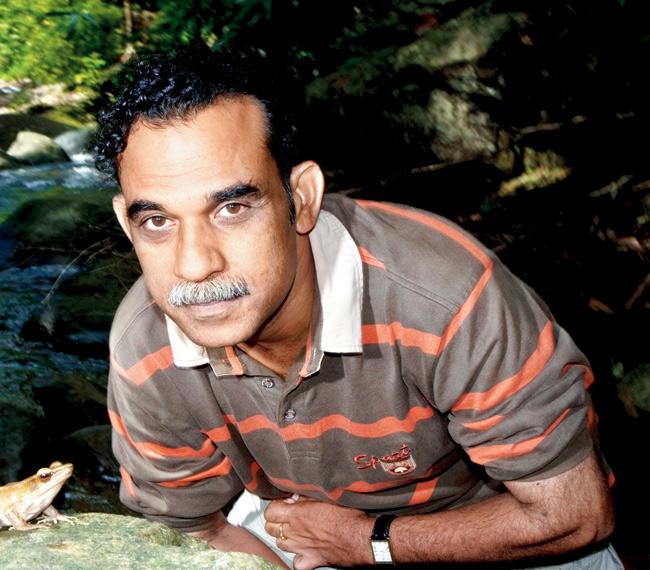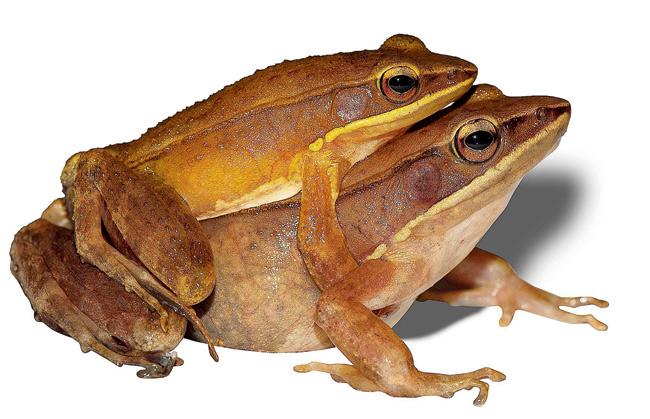A team led by amphibian researcher SD Biju, discovered seven species of Golden-backed Frogs, where one was named after city-based wildlife photographer/pathologist Dr Caesar Sengupta. Biju, also called the Frog Man of India, tells Dhara Vora why frogs are crucial to our eco-system and why their habitats must be saved

Frog
Q. What got you interested in the study of frogs?
A. I like wildlife; I spent my childhood in the wilderness and nature in my remote village in Kerala. After my first PhD in plant taxonomy, I worked at the Amphibian Evolution Lab, Brussels for a second PhD on Indian frogs. There are several reasons that got me interested in frogs. Apart from frogs being very cool, the most important reason is that amphibians indicate to a distinctive bio-geography as they cannot cross oceans, from continent to continent. They work as good subjects for the study of land they live around and its life forms. It is sad that they aren’t documented enough.

Hylarana caesari or the Maharashtra Golden-backed Frog, named after Dr Caesar Sengupta. pic courtesy/SD Biju
Q. What makes the Western Ghats unique?
A. The Western Ghats are one of the most primitive places on earth. This isolated region of mountainous ranges starts in Gujarat and continues till the tip of India. Though the landmasses of India and Sri Lanka were connected years ago, the frogs we discovered in these two regions are endemic to their own regions and do not have commonly shared species.

Croak chronicles SD Biju poses with the Maharashtra Golden-backed Frog in Koyna
Q. Despite covering such a huge area, how did you conduct your research in the Western Ghats?
A. These research findings have been a result of my work for the last 24 years. I travel all the time, for at least four to five months a year.

Q. What role do frogs play in our eco system?
A. Every creature is important to the system. I always ask, what is the use of Homo Sapiens? Frogs are very important environmental barometers. Due to the way in which they are formed, even the slightest change in any habitat can be observed in frogs. Given the disappearance of frogs in various areas, it indicates the degradation of the habitats. Each time I visit the Western Ghats, I can see the degradation of the quality of the habitats — its water bodies are different, streams vanish. Frogs are excellent specimens for scientific research. There are various chemicals that have been developed by understanding the natural chemical make-up of frogs. One example is the alternative to morphine, which is not addictive and can be used for saving lives.
Q. What role does Maharashtra play in the world of frogs?
A. There are various regions in Maharashtra such as Amboli and Koyna that are host to endemic species of frogs.
These frogs aren’t found beyond their habitat, and hence Maharashtra is a very important and unique geographical aspect for amphibian study.
Q. How did you get acquainted with Dr Caesar Sengupta?
A. There are various people who mail me, and wish to support and be a part of the researches. Sengupta too had gotten in touch with me, and we have known each other for six to seven years. He expressed his desire to support our initiative, Lost Amphibians of India. Our first expedition together was to Assam. It was due to his dedication and efforts towards the conservation of amphibians that we decided to name the Maharashtra Golden-backed Frog as Hylarana caesari.
Log on to: www.frogindia.org
 Subscribe today by clicking the link and stay updated with the latest news!" Click here!
Subscribe today by clicking the link and stay updated with the latest news!" Click here!







